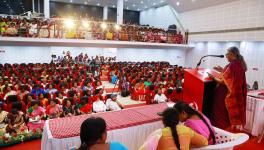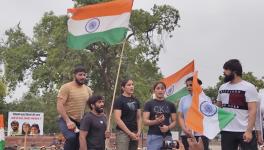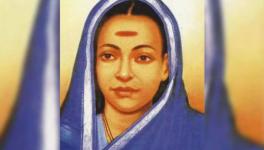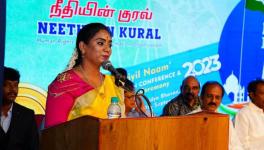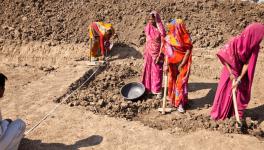Murder of Gender Justice, Say Transgender Activists as Rajya Sabha Passes Bill
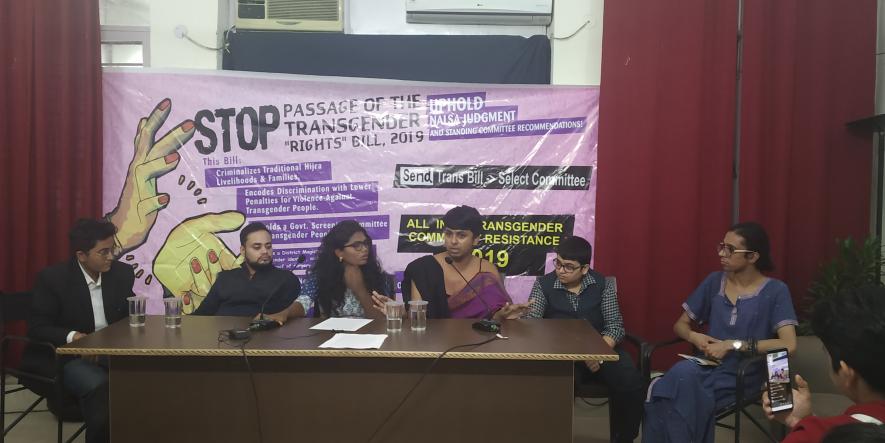
As the Rajya Sabha passed the Transgender Persons (Protection of Rights) Bill, 2019, without any amendments—despite opposition from the trans community and activists across the country—the community is terming November 26 Gender Justice Murder Day.
The Rajya Sabha on November 26 passed the Bill, which had already been passed by the Lok Sabha without any amendments. The upper house of Parliament passed the Bill after a motion to refer it to a select committee of the upper house was defeated.
Ever since the Lok Sabha passed the Bill on December 7, 2018 in a surprise move, the transgender community, along with gender rights activists, lawyers and opposition parties, has been protesting against it.
The Bill, which claims to provide a mechanism for social, economic and educational empowerment of the transgender community, was moved for consideration and passage in the Rajya Sabha by Social Justice and Empowerment Minister Thawar Chand Gehlot on November 20.
The transgender community, however, sees the bill to be discriminatory, as it tries to impose the gender binary. “We don’t want this bill. [...] The government has murdered the gender justice in India,” said Grace Banu, a trans rights activist, who is also the first transgender engineer in the country, at a press conference in New Delhi.
Recollecting the discussions with the Parliamentary Standing Committee, which was constituted to study the Bill and make recommendations, Grace said: “Most of the members did not know anything about the trans bodies or even the trans experience. Many were just curious to know what we have/had down there.”
Read More: Transgender Bill: Denying Constitutional Rights to the Community?
The Bill defines transgender person as a person whose gender does not match with the gender assigned to that person at birth and includes trans-man or trans-woman (whether or not such person has undergone sex reassignment surgery or hormone therapy or laser therapy or any other such therapy), person with intersex variations, genderqueer and person having socio-cultural identities such as kinnar, hijra, aravani and jogta.
To obtain the certificate of recognition of identity of the transgender person, as per the bill, “a transgender person may make an application to the District Magistrate for issuing a certificate of identity as a transgender person, in such form and manner, and accompanied with such documents, as may be prescribed: Provided that in the case of a minor child, such application shall be made by a parent or guardian of such child”.
Supreme Court of India’s judgment in the case of National Legal Services Authority vs. Union of India, popularly known as NALSA judgment, had given the rights to self identification of gender. “Application to the district magistrate for legal recognition and proof of surgery contradicts NALSA judgment of Supreme Court,” said Shume Banerjee.
“I might be a trans, but may not opt for surgery. The Bill mandates the surgery. That is a violation of the NALSA verdict. Not all of us want or require surgery. We should have the right to self-identification. This Bill restricts our rights,” said Banerjee.
Read More: ‘Transgender Bill Legitimises Violence Against the Community’
Explaining their own experience, Grace said: “In Tamil Nadu, individuals have to stand in front of a screening committee at a welfare board. When I want to get an identity card, we have to stand naked in front of a team of doctors, officials and community members. This procedure is unfair and continues to date.”
Banerjee added: “If Section 377 can be decriminalised in this government’s tenure, then they should also understand our issues. Most families are not supportive, especially for medical visits or surgeries. The Bill violates our rights.”
The discrimination against the transgender persons starts within the family itself in most of the cases and the activists fear that the Bill is against their concept of family too. All of the activists who attended the press conference stated that the family, for them, constitutes their fellows rather than the blood relatives. Also measures for “rehabilitation” recommended in the Bill violate the fundamental constitutional rights of free movement.
Activists demanded that the Bill be refined as the Transgender Persons, InterSex and Gender Non-conforming Bill.
“This Bill puts all people into one binary. We want a comprehensive legislation. I would like national and state-level commissions, along the lines of Trichi Siva’s suggestion,” said Ray, a transgender activist.
Earlier, Dravida Munnetra Kazhagam (DMK) leader Tiruchi Siva had said in Parliament that given the sensitivity of the issue and the insult, discrimination and atrocities inflicted on the transgender community, the Bill should be sent to the select committee.
“We can wait for another six weeks till the next session for such a crucial Bill’s scrutiny for slow and steady legislation to provide full justice to the community. The Bill in the present form has several lacunae,” said Siva.
The transgender community has been treated as “untouchables” and have been subjected to ridicule and discrimination, which is the moral failure of the society, Shiva added.
“I study at the Delhi University. What compensation will I get if I challenge any discrimination I may face? Many of our members spoke to Social Justice and Empowerment Minister Thawar Chand Gehlot, deposed before the parliamentary standing committee, but it seems, those recommendations were rejected. We want the President to refuse to sign on this Bill,” Ray added.
For sexual violence against trans persons, perpetrators will face punishment for between six months and two years, in comparison with the seven years of imprisonment for sexual violence against women and in this way, according to activists, the Bill directly discriminates and strips the community of dignity and equality.
More than this, the Bill does not have any mention of the long pending demand of the community for reservation in education, healthcare and employment. Grace, as a dalit trans woman, pointed out that the queers from minority communities such as tribals, dalits and Muslims, often face the worst forms of discrimination due to lack of social and financial security.
“See, we are not less than anyone who falls in the gender binary. But the Bill defines us to be mere bodies,” said Vikram, an activist.
(with inputs from PTI)
Read More: Transgender Bill 2019 Continues to Face Opposition from Transgender Community
Get the latest reports & analysis with people's perspective on Protests, movements & deep analytical videos, discussions of the current affairs in your Telegram app. Subscribe to NewsClick's Telegram channel & get Real-Time updates on stories, as they get published on our website.













